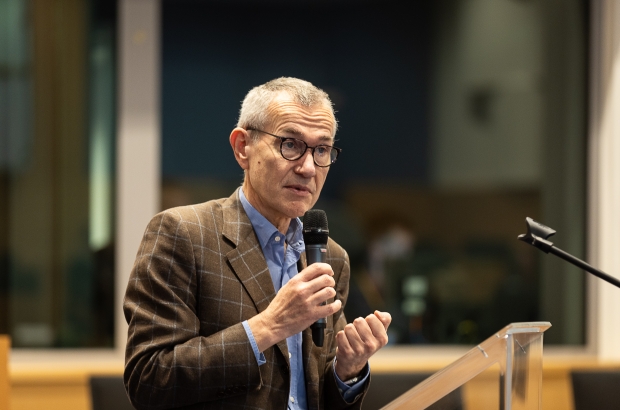- Daily & Weekly newsletters
- Buy & download The Bulletin
- Comment on our articles
Vandenbroucke to address reimbursing speech therapy fees for low IQ children
Belgium’s social affairs and public health minister Franck Vandenbroucke has pledged to change the current situation where parents of children with low IQs do not get reimbursed for special educational needs sessions with a speech therapist.
Each "logopédie" session costs €72 per hour. Normally 150 of these lessons per year are almost totally reimbursed by health insurance providers such as Partenamut – except if a child’s IQ falls below 86.
“This is an aberration and a real discrimination based on disability,” said Thomas Dabeux, head of advocacy for non-profit association Inclusion. This discrimination has been criticised for years, but continues despite requests to successive federal health ministers.
Trying to change this unfair situation, more than 5,000 parents sent vice-prime minister Vandenbroucke an open letter ahead of a parliamentary session where a bill relating to various health provisions was examined by deputies.
The opposition parties proposed amendments to add a speech therapy chapter to the bill. Following their rejection, Vandenbroucke committed to add a note to “find a solution to the problems posed” by the difference in speech therapy reimbursements. It will focus particularly on the relevance – or not – of using an IQ score to justify a refund.
“Our healthcare must be affordable and accessible,” Vandenbroucke said. “Families and children facing these problems must receive appropriate help. This is currently possible in various outpatient centres in our country, where these children can receive multidisciplinary treatment.”
But there are not enough places available, with parents sometimes having to wait years before getting a positive response. In the meantime, many cannot afford to pay nearly €300 a month on speech therapy sessions.
And without reimbursement, if parents have to cut sessions, “some children will suffer major behavioural problems again, and their language skills will regress,” Wezembeek Oppem-based speech therapist Caroline Théate told RTBF.
For parents, speech and language therapy and general help with educational difficulties is essential and the current situation is unjust.
“Before coming every week to see his speech therapist, Eduard did not know how to communicate,” Sarah-Françoise Scharpé told RTBF. “This led to a lot of frustration and shouting,” she said.
“Thanks to speech therapy, he can express how he feels; if he is hungry or thirsty or in pain via pictograms.” Without these sessions she feels that her teenager will regress and that it will be impossible to make him as independent as possible.
“We are invisible to the government,” she added.
Photo: James Arthur Gekiere/Belga



















